Search
Remove Ads
Advertisement
Summary 
Loading AI-generated summary based on World History Encyclopedia articles ...
Search Results
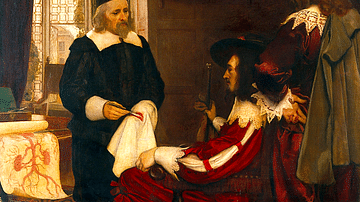
Article
William Harvey's Discovery of Blood Circulation
The human body's system of blood circulation was discovered by the English physician and anatomist William Harvey (1578-1657) in 1628. Harvey determined the relationship between the blood system of arteries and veins and the regular contractions...
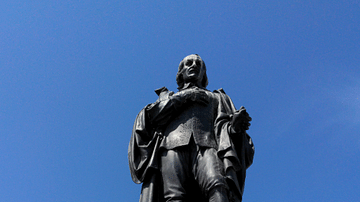
Image
Statue of William Harvey, Folkestone
A statue of the English physician William Harvey (1578-1657) who discovered the circulatory system in 1628. Folkestone, England, where Harvey was born.

Image
William Harvey & Charles I
A painting showing William Harvey (1578-1657) demonstrating to King Charles I of England (r. 1625-1649) his theory of the circulatory system.
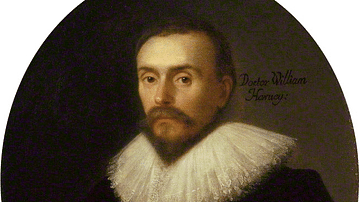
Image
Portrait of William Harvey
A c. 1627 portrait of the English physician William Harvey (1578-1657) who discovered the circulatory system in 1628. (National Portrait Gallery, London)
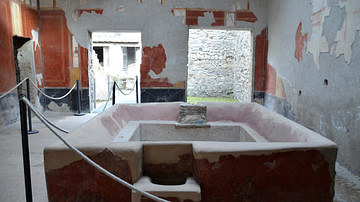
Article
The Fullers of Ancient Rome
The fullers of ancient Rome were launderers who washed the clothes of the city and also finished processing fabric later made into clothing, blankets, or other necessary items. They were looked down upon for their use of human and animal...
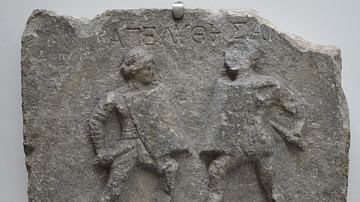
Article
Female Gladiators In Ancient Rome
Female gladiators in ancient Rome – referred to by modern-day scholars as gladiatrix – may have been uncommon but they did exist. Evidence suggests that a number of women participated in the public games of Rome even though this practice...
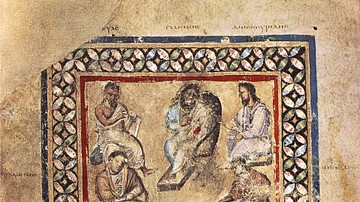
Definition
Galen
Galen (129-216 CE) was a Greek physician, author, and philosopher, working in Rome, who influenced both medical theory and practice until the middle of the 17th century CE. Owning a large, personal library, he wrote hundreds of medical treatises...

Article
Love, Sex, & Marriage in Ancient Rome
Love, sex, and marriage in ancient Rome were defined by the patriarchy. The head of the household was the father (the pater familias) who had complete control over the lives of his wife, children, and slaves. This paradigm was justified...

Definition
Francis Bacon
Francis Bacon (1561-1626) was an English philosopher, statesman, and author. Bacon is often considered one of the founders of modern scientific research and scientific method, even as "the father of modern science" since he proposed a new...

Article
Legacy of the Ancient Romans
The legacy of the ancient Romans – from both the time of the Roman Republic (509-27 BCE) and the time of the Roman Empire (27 BCE - 476 CE) – exerted a significant influence on succeeding cultures and is still felt around the world in the...